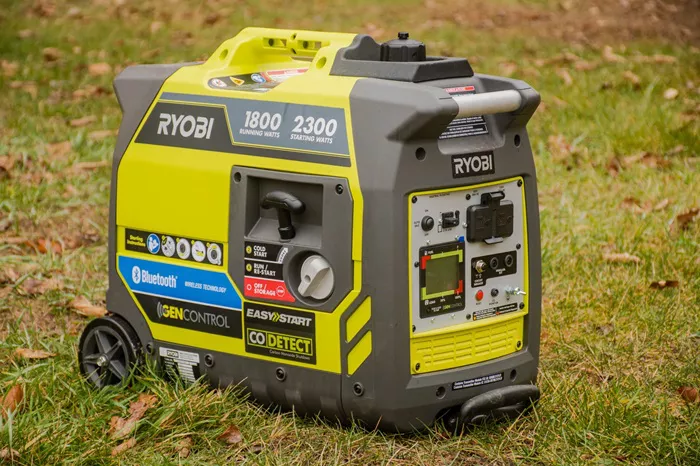Portable generators are essential tools that provide power during outages, outdoor activities, and emergency situations. They are compact, mobile, and designed to supply electricity wherever needed. One of the main questions many buyers ask is, “How much does a portable generator weigh?” The answer depends on several factors including the generator’s size, power output, fuel type, and design.
Why Weight Matters in Portable Generators
The weight of a portable generator is an important consideration for users. It affects:
- Portability: Heavier units can be difficult to move without wheels or assistance.
- Storage: Larger, heavier generators require more space.
- Installation: Some users may prefer lighter models for easy setup and transport.
Knowing the weight helps buyers pick a generator that matches their specific needs and physical capabilities.
Factors Influencing the Weight of Portable Generators
1. Power Output (Wattage)
The most significant factor affecting a generator’s weight is its power output. Portable generators range from small 1,000-watt models to heavy-duty 10,000-watt machines. Generally, the higher the wattage, the heavier the generator. This is due to larger engines, more robust alternators, and bigger fuel tanks.
2. Fuel Type
Portable generators can run on gasoline, propane, diesel, or dual fuel. Each fuel type impacts the weight differently:
- Gasoline generators are usually lighter but require more frequent refueling.
- Diesel generators tend to be heavier because diesel engines are built sturdier.
- Propane and dual-fuel generators may include extra components, affecting overall weight.
3. Frame and Build Materials
The materials used in the frame and casing also influence weight. Steel frames add durability but increase weight. Some generators use aluminum or plastic parts to reduce weight, but these materials might affect longevity and toughness.
4. Additional Features
Extras like larger fuel tanks, built-in wheels, handles, soundproofing, and control panels can add weight. These features improve usability but may make the generator bulkier and heavier.
Typical Weight Ranges for Portable Generators
Small Portable Generators (1,000 to 2,000 watts)
These models are designed for light tasks such as charging small devices or powering a few household essentials. They usually weigh between 20 to 50 pounds. Because of their lightweight, many can be carried by hand, making them ideal for camping, tailgating, or emergency kits.
Medium Portable Generators (2,000 to 5,000 watts)
Medium-sized generators power larger appliances and tools. They weigh more, usually between 50 to 100 pounds. They often come with wheels and folding handles to improve portability.
Large Portable Generators (5,000 to 10,000 watts)
Heavy-duty generators for home backup power or job sites often weigh from 100 to 200 pounds or more. These models typically include sturdy frames and wheels, but may require two people or a cart to move safely.
Comparing Portable Generators to Home Generators
While portable generators offer flexibility and mobility, many homeowners opt for stationary home generators for continuous power supply during outages. Home generators are usually much heavier and permanently installed, designed to power entire homes or large sections of them. Their weight can range from several hundred to thousands of pounds depending on the size and type.
Types of Home Generators and How They Differ from Portable Units
Understanding the difference between home generators types helps clarify why portable generators weigh less:
- Standby Generators: Permanently installed, connected to home wiring, and typically weigh hundreds of pounds.
- Inverter Generators: Portable, quieter, and lighter, but with lower power capacity.
- Portable Generators: Designed for mobility and temporary power; lighter but less powerful than standby models.
Practical Uses of Portable Generators
Portable generators have diverse applications. Their weight and size often determine the best use case:
- Outdoor camping and RV trips.
- Emergency power for essential appliances.
- Job sites requiring electricity for tools.
- Recreational events or tailgating parties.
For heavier-duty needs, many prefer stationary home generators. For smaller, mobile power needs, portable generators provide the right balance between power and portability. Learn more about home generators uses to see where portable models fit best.
How to Safely Move and Handle Portable Generators
Because portable generators vary in weight, it’s important to handle them safely:
- Use built-in wheels and handles whenever possible.
- Lift with your legs, not your back, if carrying is necessary.
- Get assistance for heavier models over 75 pounds.
- Store generators in a dry, ventilated place to avoid rust and damage.
Weight and Transport Considerations for Buying a Portable Generator
Before purchasing, consider how often you will need to move the generator and over what distances. If you plan to carry it by hand, a model under 50 pounds may be best. For longer distances or heavier units, look for generators with sturdy wheels and comfortable handles.
Examples of Popular Portable Generator Weights
| Model | Power Output | Weight |
|---|---|---|
| Honda EU2200i | 2,200 watts | 47 pounds |
| Generac GP6500 | 6,500 watts | 192 pounds |
| Champion 3100-Watt | 3,100 watts | 95 pounds |
| Westinghouse WGen7500 | 7,500 watts | 196 pounds |
Conclusion
The weight of portable generators ranges widely depending on their power output, fuel type, and design features. Small models can weigh as little as 20 pounds, while larger units may approach 200 pounds or more. This weight affects portability, storage, and usability.
For home power needs, many consider home generators as a permanent solution, but portable generators remain popular for their mobility and versatility. Choosing the right weight and power balance is key to meeting your energy needs safely and effectively.

